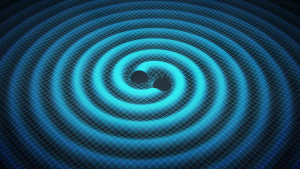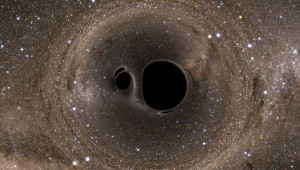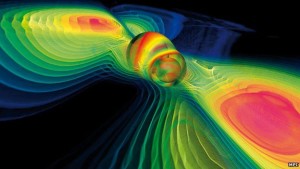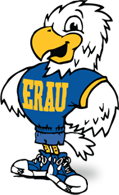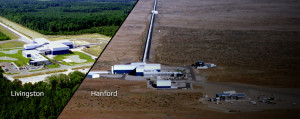 Well the cat’s out of the bag: the Laser Interferometer Gravitational-Wave Observatory Collaboration, or the LIGO Collaboration, has detected and confirmed the existence of gravitational waves. Finally, I don’t have to giggle to myself as my friends ask why I am doing research on a project that had such a small chance of success. Finally, I don’t have to keep secret about one of the biggest discoveries in the modern science, something I have known about since September when it was detected. It is an exciting time, not just to see the amazing results of a project that I am a small, insignificant part of, but also because that means that a completely new field of research has just opened up, gravitational wave astronomy.
Well the cat’s out of the bag: the Laser Interferometer Gravitational-Wave Observatory Collaboration, or the LIGO Collaboration, has detected and confirmed the existence of gravitational waves. Finally, I don’t have to giggle to myself as my friends ask why I am doing research on a project that had such a small chance of success. Finally, I don’t have to keep secret about one of the biggest discoveries in the modern science, something I have known about since September when it was detected. It is an exciting time, not just to see the amazing results of a project that I am a small, insignificant part of, but also because that means that a completely new field of research has just opened up, gravitational wave astronomy.
First, let me explain a bit about gravitational waves, if you haven’t already seen the countless videos. Gravitational waves were first predicted by Einstein in 1916 when he formulated the idea of general relativity.
In essence, they are the perturbations, or ripples, in the fabric of space and time. They are emitted from massive systems, like coalescing two black holes converging and merging into one, which is actually what LIGO detected, or giant cataclysms like supernovae. They are a confirmation of a theory we have been using for a century, but they are also a new tool we can use to probe the universe. As the comparison goes, “As Galileo’s telescope opened our eyes to the universe, gravitational waves have opened our ears.”
The best part is that I can be a part of the research during this era of discovery, even though I am only an undergraduate student. Embry-Riddle is a host to many esteemed faculty that do research and encourage their students to do research, and there is an entire department dedicated to student research in the form of the Undergraduate Research Institute run by Dr. Anne Boettcher. In fact, three professors in the physics department – Dr. Michele Zanolin, Dr. Brennan Hughey, and Dr. Andri Gretarsson – are involved in the LIGO experiment, and actually are the only scientists in the whole Four Corners area (Arizona, Utah, New Mexico, and Colorado) that are pursuing this research.
Research for undergraduate students is incredibly important, but also highly demanding. I work ten hours a week, reading papers on high-level statistics, writing proofs, learning to code, and analyzing data. It requires a lot of concentration and persistence, especially since I have had to learn a completely new set of skills and knowledge. And it means that as a student, I have to take initiative and follow through on something I am not receiving a grade for. But in the end, I don’t regret it, since I was able to sit in the conference room at 8:30 am and watch the live press release of something amazing. Since I was able to be a part of something bigger than I was. Since I have learned so much about something so fascinating that otherwise I would have known nothing about. And in the end, we discovered gravitational waves!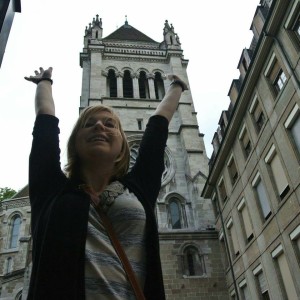
Sophia Schwalbe is a Junior in Space Physics, in Air Force ROTC and the Honors Program, and has participated in research with LIGO.



